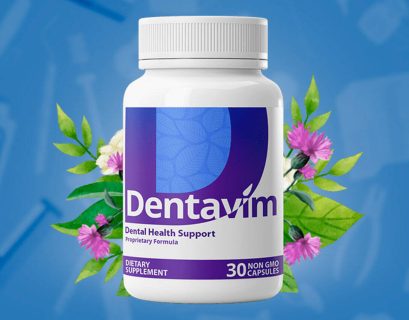Oral Health for Vegetarians:
Switching to a vegetarian diet can bring a range of health benefits, from lowering the risk of chronic diseases to improving digestion. However, like any diet, a plant-based approach requires special attention to certain nutrients to ensure balanced health, including oral health. Vegetarians, who avoid meat but may consume other animal products like dairy and eggs, often face specific challenges when it comes to maintaining strong teeth and gums.
In this article, we’ll explore how a vegetarian diet impacts oral health, common oral health concerns for vegetarians, and practical tips to ensure a healthy smile while following a plant-based lifestyle.
You Might Also Interested In: Contractor SEO Agency
The Benefits of a Vegetarian Diet for Oral Health
There are several benefits of a plant-based diet that can positively influence oral health:
- High in fruits and vegetables: Vegetarians typically consume more fruits and vegetables than their meat-eating counterparts. Many of these foods are rich in vitamins, antioxidants, and fiber, all of which promote good oral health.
- Rich in antioxidants: Vegetables and fruits are loaded with antioxidants like vitamins C and E, which help protect gums and tissues in the mouth from inflammation and infection.
- Lower sugar and processed foods intake: Vegetarian diets often focus on whole, unprocessed foods, which can reduce the intake of added sugars, a major contributor to cavities and gum disease.
While these factors support oral health, vegetarians need to be aware of potential nutrient gaps that could affect their dental well-being.
Key Nutrients for Oral Health and Where Vegetarians Can Find Them
Maintaining healthy teeth and gums requires a balance of essential nutrients. Here are the most important ones to focus on, along with vegetarian-friendly food sources:
1. Calcium
Calcium is a key mineral for building and maintaining strong teeth and bones. A deficiency in calcium can lead to weakened enamel, which makes teeth more susceptible to cavities and erosion.
- Vegetarian sources: Leafy green vegetables (like kale, spinach, and collard greens), almonds, fortified plant-based milks (like almond or soy milk), tofu, and yogurt (if consuming dairy).
2. Vitamin D
Vitamin D works in tandem with calcium to strengthen teeth and bones. Without enough vitamin D, your body can’t absorb calcium effectively, which can result in weakened teeth and an increased risk of gum disease.
- Vegetarian sources: Fortified plant-based milks, fortified orange juice, mushrooms exposed to sunlight, and direct sun exposure.
3. Vitamin B12
Vitamin B12 is crucial for maintaining the health of your nerves and blood cells, and a deficiency can lead to problems like mouth sores, bleeding gums, and bad breath. Since B12 is primarily found in animal products, vegetarians—especially vegans—need to ensure they get enough through fortified foods or supplements.
- Vegetarian sources: Fortified cereals, nutritional yeast, fortified plant-based milk, and B12 supplements.
4. Protein
Protein helps repair tissues and maintain the strength of your teeth and gums. A lack of sufficient protein can result in slower healing of oral wounds and weaker gum tissues, making them more prone to infection.
- Vegetarian sources: Legumes (beans, lentils, chickpeas), tofu, tempeh, seitan, quinoa, nuts, seeds, and eggs (if part of your diet).
5. Iron
Iron is essential for healthy red blood cells, which carry oxygen to the tissues in your body, including your gums. A deficiency in iron can lead to pale gums, inflammation, and mouth sores.
- Vegetarian sources: Lentils, chickpeas, spinach, quinoa, tofu, fortified cereals, and pumpkin seeds. Pairing iron-rich foods with vitamin C-rich foods (like bell peppers or oranges) can boost iron absorption.
6. Vitamin C
Vitamin C plays a vital role in the health of your gums and the production of collagen, which helps maintain the integrity of gum tissue. A lack of vitamin C can lead to gum inflammation (gingivitis) and bleeding gums.
- Vegetarian sources: Citrus fruits (oranges, lemons, limes), strawberries, bell peppers, broccoli, and tomatoes.
Common Oral Health Concerns for Vegetarians
While a vegetarian diet offers many oral health benefits, it also presents some challenges. Here are the most common oral health issues that vegetarians should be aware of:
1. Increased Risk of Enamel Erosion
Many fruits, especially citrus fruits, and other acidic foods (like tomatoes) are common staples in vegetarian diets. While they are healthy, their high acidity can wear away at tooth enamel over time, leading to sensitivity and cavities.
- Tip: After consuming acidic foods, rinse your mouth with water or wait about 30 minutes before brushing to allow your saliva to neutralize the acid.
2. Potential for Deficiencies in Key Nutrients
As mentioned earlier, calcium, vitamin D, and vitamin B12 deficiencies are more common among vegetarians due to the limited availability of these nutrients in plant-based foods. These deficiencies can lead to weakened teeth, gum disease, and other oral health problems.
- Tip: Incorporate fortified foods and, if necessary, supplements into your diet to ensure you’re meeting your nutritional needs.
3. High Sugar Intake from Fruit and Starches
Many vegetarians rely on fruits and starchy vegetables, which can be high in natural sugars. While these foods are healthy in moderation, an overconsumption of sugar can increase the risk of cavities, especially if oral hygiene is neglected.
- Tip: Balance your diet with a variety of whole foods, including non-starchy vegetables and high-protein plant-based foods. Be mindful of frequent snacking on sugary foods, and brush your teeth after meals when possible.
4. Dry Mouth from Plant-Based Diets
Plant-based diets tend to be lower in fats, which can sometimes contribute to dry mouth, especially if adequate water intake isn’t maintained. Dry mouth reduces the production of saliva, which plays a key role in washing away bacteria and food particles, neutralizing acids, and protecting tooth enamel.
- Tip: Stay hydrated throughout the day by drinking plenty of water. Chewing sugar-free gum or eating crunchy fruits and vegetables can help stimulate saliva production.
Tips for Maintaining Good Oral Health on a Vegetarian Diet
To keep your teeth and gums healthy while following a vegetarian lifestyle, here are some practical steps you can take:
1. Brush and Floss Regularly
Brush your teeth twice a day with fluoride toothpaste to remove plaque and food particles. Floss daily to clean between your teeth and below the gumline. These habits help prevent tooth decay and gum disease, especially if you consume fruits and starchy foods frequently.
2. Rinse with Water After Meals
Rinse your mouth with water after eating acidic or sugary foods to help neutralize acids and wash away residue that could contribute to enamel erosion and cavities.
3. Use a Fluoride Mouthwash
In addition to brushing and flossing, using a fluoride mouthwash can help strengthen your enamel and protect your teeth from decay. Look for mouthwashes that contain fluoride to give your teeth an extra layer of protection.
4. Chew Sugar-Free Gum
Chewing sugar-free gum after meals can stimulate saliva production, which helps to neutralize acids and wash away food particles. This can be especially helpful after consuming acidic fruits or starchy foods.
5. Visit Your Dentist Regularly
Regular dental checkups and cleanings are essential for maintaining oral health, especially if you follow a specialized diet like vegetarianism. Your dentist can monitor your oral health, catch potential issues early, and provide advice on how to improve your oral hygiene routine based on your diet.
Final Thoughts
A well-balanced vegetarian diet can support good oral health, but it’s important to be mindful of potential nutrient deficiencies and their impact on your teeth and gums. By focusing on a variety of plant-based foods that provide essential nutrients and practicing good oral hygiene, you can maintain a healthy, vibrant smile while enjoying the benefits of a vegetarian lifestyle.
Taking a proactive approach to both your diet and oral care routine will help ensure that your oral health remains strong for years to come, proving that you can be plant-powered and smile-bright all at once!



















